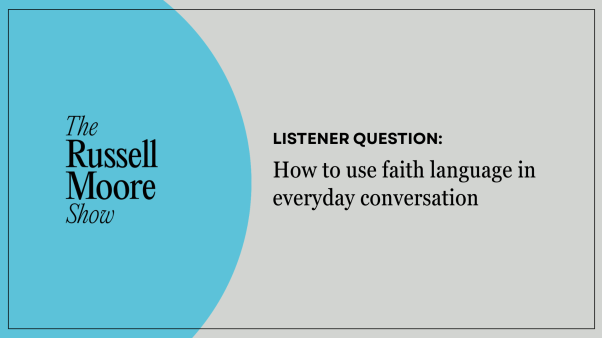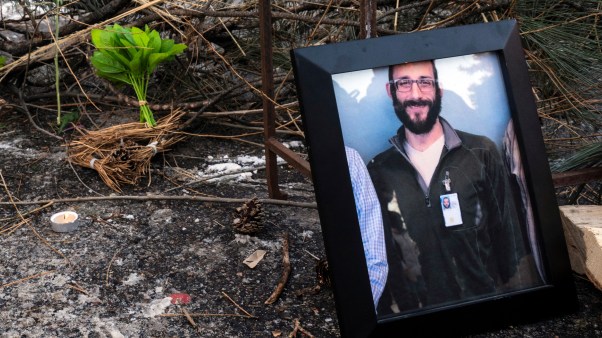In some ways, all eras of evangelical journalism are remarkably alike. It’s too cynical to conclude, with Ecclesiastes, that there’s nothing new under the sun, but similar issues and challenges continually bob up to the surface.
This lesson hit home a few months ago as I combed through bound archives of Christianity Today spanning decades. The names and faces change (to say nothing of fashions in graphic design and hairstyles). But the headlines signal persistent worries about religious liberty, political division, church scandal, missions, and biblical literacy, among other hardy perennials.
My research in the archives was born of our plans for this issue, with its focus on books and reading. After considering (and mercifully rejecting) a proposal to retroactively bestow a slate of CT Book Awards upon books published before these annual honors existed, we landed on a less fanciful alternative: I would identify a single significant book that CT had undercovered or neglected entirely. And this column—already devoted to my own leisure-reading sweet spot of old but not too old books—would try to give that book its due.
Thus began a circuitous investigation, full of false starts and dead ends. But eventually, it led to a book I’ve been curious to read for years: R. Kent Hughes’s Disciplines of a Godly Man.
In 19 briskly paced chapters, Hughes offers biblical counsel on matters of sexual purity, family rhythms, devotional diligence, moral character, and church fellowship. First published in 1991, the book had updated editions in 2006 and 2019, which testifies to its enduring appeal—especially within Reformed circles, where Hughes labored for decades as a pastor and seminary professor.
From what I can gather, CT never commissioned a review. Why? Even with long personal experience overseeing our books coverage, I can only hazard wild guesses.
Review decisions are hardly an exact science. Editors bring a bundle of instincts and hunches to our deliberations. Judgments of quality and relevance reflect differing backgrounds, convictions, and temperaments. And as I’m painfully aware, our ambitions to cover every worthwhile book bump up against scarcities of magazine space and hours in the day. My own coverage plans have embarrassing omissions every year.
Thinking back to the early ’90s, one possible reason for skipping Disciplines was a publishing market already saturated with kindred titles. Christian books, like Christian magazines, revisit the same topics from generation to generation, and there are always lots of Christian men telling other Christian men how to become better Christian men.
Some of these authors, like Man in the Mirror founder Patrick Morley, emphasize practical guidance rooted in Scripture. Others, like John Eldredge in Wild at Heart, probe for some swashbuckling spirit of masculinity. The genres, approaches, and author spokesmen are legion, so a book like Disciplines may seem undistinctive, even if everything it says is resoundingly true.
Another factor that influences my review decisions is whether a book fulfills the promise of its title, and that’s an open question with Disciplines of a Godly Man. With a few inconsequential tweaks, it might easily bear the title Disciplines of a Godly Christian in General. The great bulk of Hughes’s advice to believing men applies with equal force to believing women.
Yes, some of his language and illustrations lean on men’s-retreat motifs. There are anecdotes from professional sports, allusions to Winston Churchill, and scattered exhortations to “man up” in some area of Christian obedience. The book’s dominant picture of discipline evokes 1 Timothy 4:7, where Paul admonishes his protégé to train himself in godliness. Hughes revels in images of vigorous, sweat-drenched workouts.
By and large, however, the book keeps a polite distance from gender specifics. Long stretches pass without any mention of men, women, or anything authentically (or even stereotypically) male or female. Chapters on godly fathers and husbands contain wisdom equally suited to godly mothers and wives.
In a typical section, Hughes might unfold several pages of straightforward biblical instruction on prayer, Bible study, worship, or fellowship before inserting a pithy, pointed gut check: Men, are you serious about this? By the time the question arrives, you’ve forgotten that men were being addressed in the first place.
Hughes does occasionally single out domains of discipline, like sustaining deep friendships and cultivating rich devotional lives, where he sees godliness gaps between men and women. But the comparisons rely on underdeveloped throwaway lines. “We all know,” to quote one example, “that men, by nature, are not as relational as women.” And “they are not as spiritually sensitive and open as women,” to quote another. Perhaps he’s right. If so, it’s worth unpacking why.
By now, it might sound like Disciplines of a Godly Man disappointed me. But in fact, it gradually won me over. For all my frustrations with its commingling of guidance for Christ-ian men and guidance for Christians in general, it sidesteps a more serious pitfall: commingling biblical teaching with cultural dross.
Sometimes this error takes fairly innocuous (or mildly amusing) forms, as when books marketed to men play up themes of getting fit, grilling meat, and grooming beards. Sometimes it veers off in nastier directions, as with recent polemics like The Manliness of Christ: How the Masculinity of Jesus Eradicates Effeminate Christianity. In hewing closely to Scripture, even at the cost of forsaking more man-centered entreaties, Hughes stays on sure ground.
I do believe some authors are called to tiptoe onto riskier territory. In an era when men are often confused about our roles and responsibilities—and beguiled by vulgar (or worse) “influencers” online—it behooves us to have comprehensive portraits of biblical manhood in the family, church, and workplace. Hopefully we can draw these portraits with nuance and sensitivity instead of sketching bizarre or demeaning caricatures.
But Disciplines of a Godly Man holds a counterintuitive lesson: Perhaps the books that best serve men do so precisely by serving the whole body of Christ.
Matt Reynolds is senior books editor for Christianity Today.



















